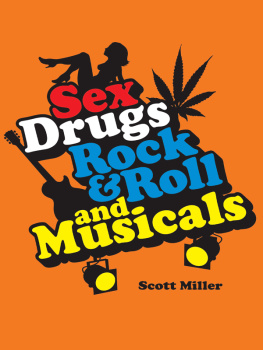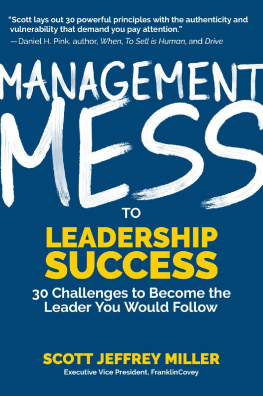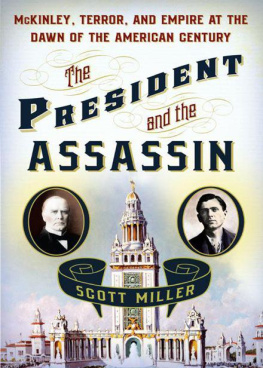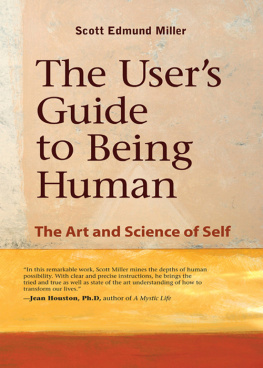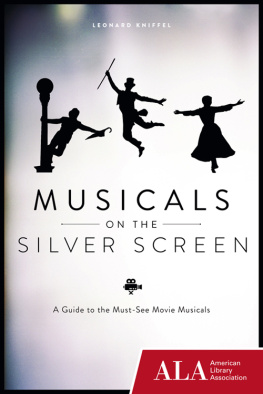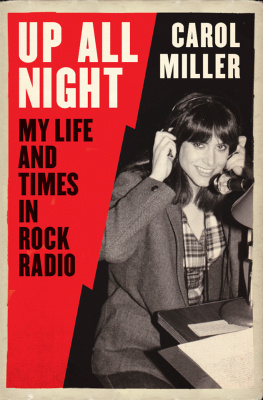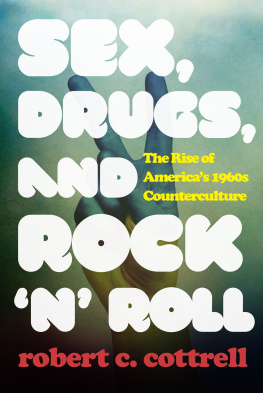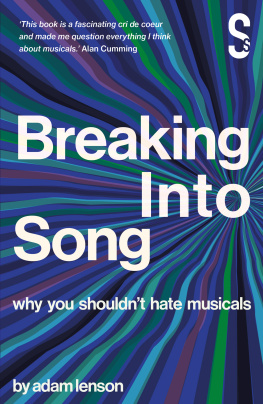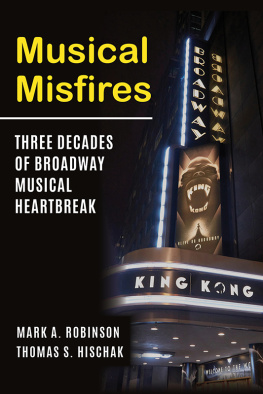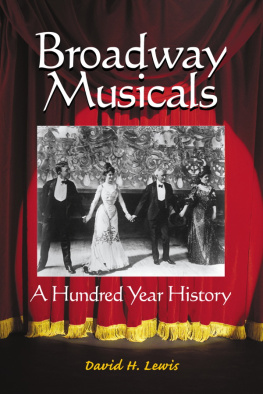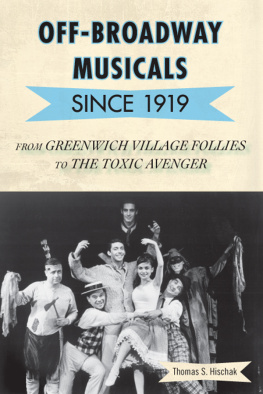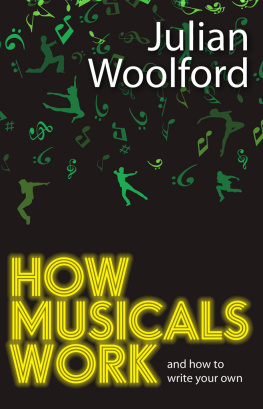Scott Miller - Sex, Drugs, Rock & Roll, and Musicals
Here you can read online Scott Miller - Sex, Drugs, Rock & Roll, and Musicals full text of the book (entire story) in english for free. Download pdf and epub, get meaning, cover and reviews about this ebook. year: 2011, publisher: Northeastern University Press, genre: Home and family. Description of the work, (preface) as well as reviews are available. Best literature library LitArk.com created for fans of good reading and offers a wide selection of genres:
Romance novel
Science fiction
Adventure
Detective
Science
History
Home and family
Prose
Art
Politics
Computer
Non-fiction
Religion
Business
Children
Humor
Choose a favorite category and find really read worthwhile books. Enjoy immersion in the world of imagination, feel the emotions of the characters or learn something new for yourself, make an fascinating discovery.
- Book:Sex, Drugs, Rock & Roll, and Musicals
- Author:
- Publisher:Northeastern University Press
- Genre:
- Year:2011
- Rating:3 / 5
- Favourites:Add to favourites
- Your mark:
- 60
- 1
- 2
- 3
- 4
- 5
Sex, Drugs, Rock & Roll, and Musicals: summary, description and annotation
We offer to read an annotation, description, summary or preface (depends on what the author of the book "Sex, Drugs, Rock & Roll, and Musicals" wrote himself). If you haven't found the necessary information about the book — write in the comments, we will try to find it.
An endlessly entertaining and informative look at how musicals have both reflected and adapted to Americas changing mores.
Sex, Drugs, Rock & Roll, and Musicals — read online for free the complete book (whole text) full work
Below is the text of the book, divided by pages. System saving the place of the last page read, allows you to conveniently read the book "Sex, Drugs, Rock & Roll, and Musicals" online for free, without having to search again every time where you left off. Put a bookmark, and you can go to the page where you finished reading at any time.
Font size:
Interval:
Bookmark:
ALSO BY SCOTT MILLER
From Assassins to West Side Story:
The Directors Guide to Musical Theatre
Deconstructing Harold Hill:
The Insiders Guide to Musical Theatre
Rebels with Applause:
Broadways Groundbreaking Musicals
Let the Sun Shine In:
The Genius of Hair
Strike Up the Band:
A New History of Musical Theatre
In the Blood a novel
ROCK & ROLL,
AND
MUSICALS
NORTHEASTERN UNIVERSITY PRESS
BOSTON
Dedicated to
SPARGER-BERGER,
for bringing so many of
my rock musicals to life.
2011 Northeastern University An imprint of the University Press of New England www.upne.com All rights reserved Manufactured in the United States of America Designed by Richard Hendel Typeset in Arnhem and Fresco types by Keystone Typesetting, Inc.
For permission to reproduce any of the material in this book, contact Permissions, University Press of New England, One Court Street, Suite 250, Lebanon NH 03766; or visit www.upne.com
Library of Congress Cataloging-in-Publication Data Miller, Scott, 1964 Sex, drugs, rock & roll, and musicals / Scott Miller. 1st ed.
p. cm.
ISBN 978-1-55553-742-5 (cloth : alk. paper) ISBN 978-1-55553-743-2 (pbk. : alk. paper) ISBN 978-1-55553-761-6 (e-book)
1. MusicalsSocial aspects.
2. MusicalsHistory and criticism.
3. Rock musicSocial aspects. 4. Music Psychological aspects. I. Title. II. Title: Sex, drugs, rock and roll, and musicals. ml3918.m87m55 2011
782.1416609dc23 2011018547
5 4 3 2 1
The American musical theatre as an art form has never been more vigorous or more adventurous than it is right now, and sex, drugs, and rock and roll have collectively become the life-blood of this new postmodern golden age, an era rejecting the mid-century morality and modernism of Rodgers and Hammerstein, an era that began in the mid-1990s with rule-shattering shows like Bat Boy; Rent; Hedwig and the Angry Inch; Songs for a New World; The Capeman; Bring in da Noise, Bring in da Funk; The Bomb-itty of Errors; and others.
Sex, drugs, and rock and roll may be the most powerful cultural forces we know today. All three have always stirred up irrational fear in many of us because all three come from very primal human drives, and that reminds people of their animal side and they dont like that. We want to believe weve civilized out of ourselves those animal instincts and urges and appetites. Sex, drugs, and rock and roll all remind us that we still have a primal side. We still have those appetites. In sex we seek connection. In rock and roll, we seek emotional expression. And in drugs we seek altered consciousness, just as humans have done for centuries, going back through all the worlds religions. But for many, the acknowledgementor even worse, the indulgingof those primal urges means anarchy and chaos.
Broadway lyricist E. Y. (Yip) Harburg once wrote, Words make you think a thought. Music makes you feel a feeling. A song makes you feel a thought. A song can degrade your culture, debase your language; can pollute your air and poison your taste or it can clear your thoughts and refurbish your spirit. It is the pulse of a nations heart, the fever chart of its health. Are we at peace? Are we in trouble? Are we floundering? Do we feel beautiful? Do we feel ugly? Are we hysterical? Violent? Listen to our songs.
There are those musical theatre traditionalists who believe fervently that theatre music should all still sound more or less like The Pajama Game (1954). These purists still wish rock and roll would fade away and leave musical theatre alone. The Pajama Game has a nice, tuneful score, but it holds little relevance for todays world of urban violence, terrorism, and new media. Those just arent our songs anymore. America was a different country with a very different culture when the classic musical drama (the Rodgers and Hammerstein model) and the classic musical comedy (the George Abbott model) were born and perfected. And then everything changed in the 1960s and 1970s, with Vietnam, Watergate, the sexual revolution, and so much more. America is no longer the same country Rodgers and Hammerstein and Jerry Herman wrote about.
Though many people still feel great affection for the classic Rodgers and Hammerstein musicals and their imitators, today most of those shows are more historical artifacts than living theatre. They once had their metaphorical finger on the pulse of American hopes and dreams and fears during the mid-twentieth century, and they certainly moved the art form forward, but its a different world now, with different music, and America is a very different country.
Many Americans no longer feel a nostalgia for the turn of the last century or for the venerated rugged individualism that built our nation. No longer does ragtime or Broadways longtime workhorse, the foxtrot, represent Americas musical voice. Our world today is a mass of complexities and ambiguities, awash in moral and intellectual gray area, so those older shows and musical forms no longer have much relevance for most of us anymore. The homespun folk wisdom of Rodgers and Hammerstein doesnt speak to our very different American zeitgeist today. The old-fashioned musicals created during the questionably dubbed golden age of musical theatre (19431964) are as distant and foreign to us now as old-school, turn-of-the-twentieth-century operettas like The Student Prince (1924) and Naughty Marietta (1910). These older shows dont offer the same experience they once did to todays audiences, who live in an age of information and irony.
Though many people may still agree that Show Boat (1927) and Carousel (1945) are masterpieces, they are nonetheless pre-1960s masterpieces. The 2008 Broadway revival of South Pacific worked only because the production infused a dark, foreboding irony underneath the dialogue, giving it more complexity and ambiguity than its original production had, and refashioning it (without rewriting it too much) into a post-1960s work. The same thing happened with Carousel in 1994 and The King and I in 1996, but it required a fundamentally revisionist approach. What was daring in the 1940s is old-fashioned today.
In contrast, the musicals of the 1960s and 70s really did change almost everything and many of them still seem daring and relevant today, if done wellCabaret, Hair, Man of La Mancha, Anyone Can Whistle, Company, The Robber Bridegroom, Chicago, The Rocky Horror Show, Jesus Christ Superstar, The Best Little Whorehouse in Texas, Sweeney Todd, and others.
The 1960s and 1970s were an explosive period for musical theatre as a serious art form and for our national culture. Once the experimental theatre movement exploded in New York in the 60s, commercial theatre began to borrow its devices and philosophy, and Broadway itself became more experimental. The influence of German director and playwright Bertolt Brecht took hold of the musical theatre around this time as well, with shows like Cabaret, La Mancha, Company, Follies, Chicago, and lots of others. The American musical theatre got adventurous and ironic in the 1960s, and it got subtextual in the 1970s.
The indomitable leading ladies of the classic musical comedyReno Sweeney, Dolly Levi, Mame Dennis, and Marian the Librarianhave given way to more real, complicated women on musical theatre stages today, like the deeply damaged Diana in Next to Normal or the abused Celie in The Color Purple, or the mentally disabled Clara in The Light in the Piazza
Font size:
Interval:
Bookmark:
Similar books «Sex, Drugs, Rock & Roll, and Musicals»
Look at similar books to Sex, Drugs, Rock & Roll, and Musicals. We have selected literature similar in name and meaning in the hope of providing readers with more options to find new, interesting, not yet read works.
Discussion, reviews of the book Sex, Drugs, Rock & Roll, and Musicals and just readers' own opinions. Leave your comments, write what you think about the work, its meaning or the main characters. Specify what exactly you liked and what you didn't like, and why you think so.

